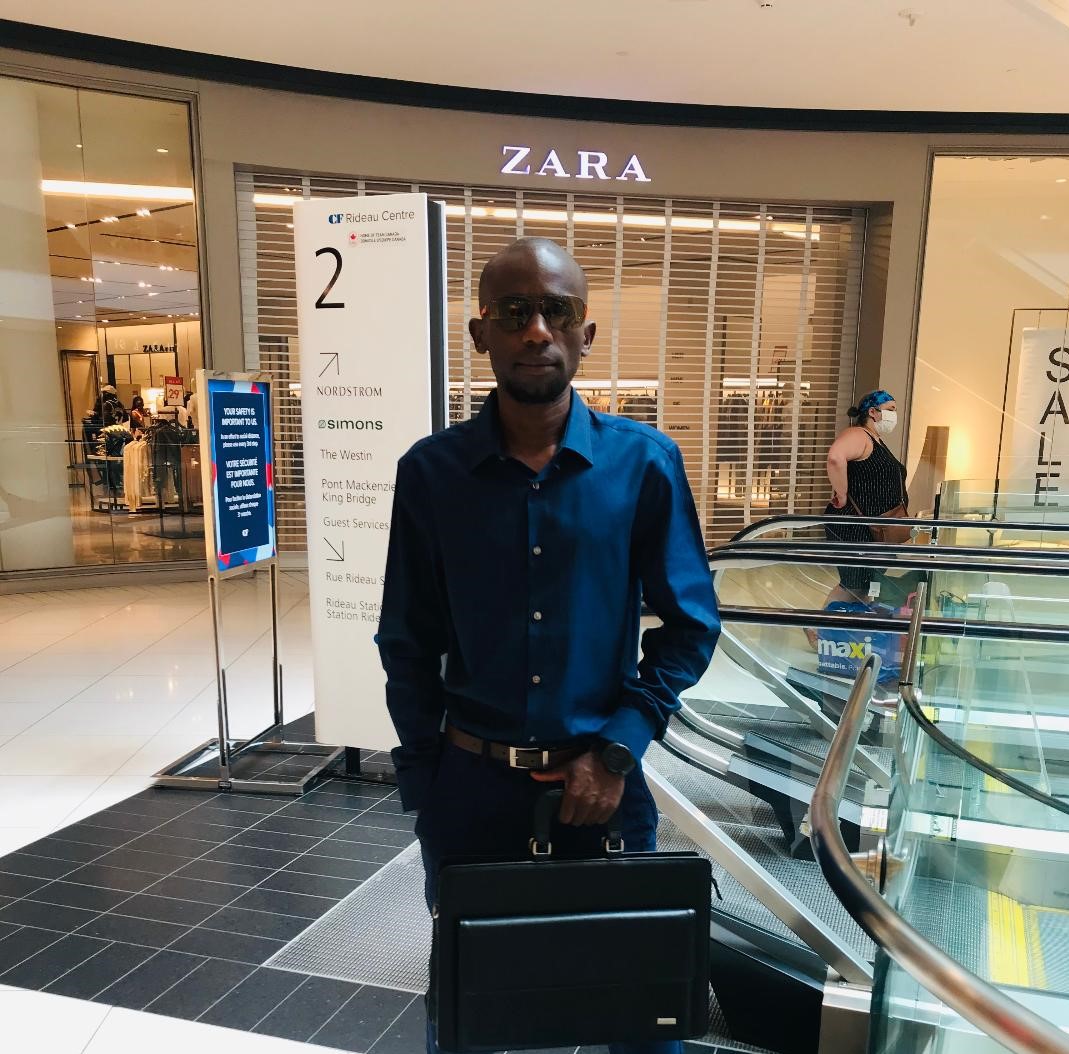Anti-Blackness makes me justify my own funds first to buy pricey gadgets
Anti-Blackness makes me justify my own funds first to buy pricey gadgets

I was made to sign a “mini-affidavit” when purchasing a $200 Caravelle brand watch this summer.
This brought back perturbing memories of when I wandered into a La Source shop at the St. Hubert Mall in Montreal last year. I was buying an iPad Pro 7 for the first time, and I was proud to pay $600 cash on the spot.
I loitered around the phones booth and inquired about that $600 iPad. “You deserve a phone plan and $100 Chinese tablet,” the salesman sneered at me.
“$100 Chinese phone won’t do me good,” I countered.
He grinned, “I see your face is not from here. iPads…?”
On arrival home I could hardly sleep through the freezing winter night, thoroughly humiliated from a $600 iPad enquiry. I was, according to my landlord Paul, that perfect retail scare: a young Black man with no credit card, and speaking zero French language words in Quebec. “Worse could have happened,” Paul, my landlord, said.
Fast forward to last week´s purchasing of a Caravelle watch at the Doucet store in Gatineau, QC, and my 2019 iPad humiliation at the St. Hubert Mall zoomed back to mind. An elderly shopkeeper inside Doucet politely asked to see my ID when I presented my debit card at her at the till to tie up the watch deal. Her other shop stewards stopped and gathered their eyes for the transaction like athletes suddenly frozen by a whistle. She was polite but firm in requesting for my ID which I handed over to her along with my bank card. Nothing escaped from me: that for a young Black man purchasing a pricey object, justifying “legitimate source and proof of ownership of funds” is as emotionally oppressive as the circumstances that makes us as Black people less able to afford pricey stuff in the first place.
This is not a far-fetched rant. My own lovely banker, the Bank of Montreal, went into apology overdrive this January when in Vancouver, an Indigenous man was handcuffed along with his teenage granddaughter while hoping to open a checking account. The teller viewed the would-be-customers as fraudsters and Vancouver police were contacted. Having police called in response to a simple retail suspicion can have dire outcomes. If one is Black, Indigenous, or immigrant and obviously speaking with a “difficult accent”, straightforward misunderstandings can be deadly.
On arrival in Canada, for a time I used to hold a temporary debit card that had no name of me printed on the surface whilst waiting for a branded card. It was telling when purchasing $380 worth of winter boots that a cashier glanced and made a passing remark, “the card just got a string of numbers?”
This June in Ottawa, inside Simons I heaped a tray of suits and shirts totaling up to $1500. It was my once-a-year summer shopping bonanza until the cashier dampened my spirits, asking “what job do you do?”
Credit card misuse, and plain fraud in Canada totals $800 million per annum. It is perfectly understandable that, for large transactions, shop tellers are the first spotters of buyers who don’t appear to be the legitimate owners of the money in transaction, just like banks front staffers.
However, “retail vigilantism” is where a noble initiative devolves into an atmosphere of suspicion, and prejudice towards Black shoppers like me. The vigilantism directed towards Black shoppers in some upper-class boutiques often begins with being aggressively tailed around the display shelves. It can then extend up to the till when your personality must match the probable “owner of funds.”
As a black shopper, nothing gives me heart palpitations like the thoughts of police suddenly being called on me whether in the bank, or inside a clothing boutique. I don’t just fear being tasered, but “accent” misunderstandings that could turn fatal. Hence when shopping I dress “properly”. In fact this means overdressing to give a mental picture to retail cashiers in up-class shops that “he looks like the owner of the credit card; looks like he can afford the sports bike.”
It is with this in mind that each time I wander into a pricey jewelry shop I behave like a footballer standing solemnly for the anthem. I fold my hands at the back of my pelvis and then use my eyes to view the items for sale as I glide around the display section. This is my verbal cue of assuring the teller that my hands are removed far from jewelry and watches. Something like putting my hands up in a sign of peace and compliance in front of approaching police officers.
For a hardworking Black man like me, the very reality of saving money to afford a pricey gadget could be seen as a “source of funds” red-flag by vigilant retail cashiers. If police are called, the outcome can be grim.
Ray Mwareya is associate editor of World Ethical Data Foundation. They live in Ottawa. Twitter: @rmwareya


